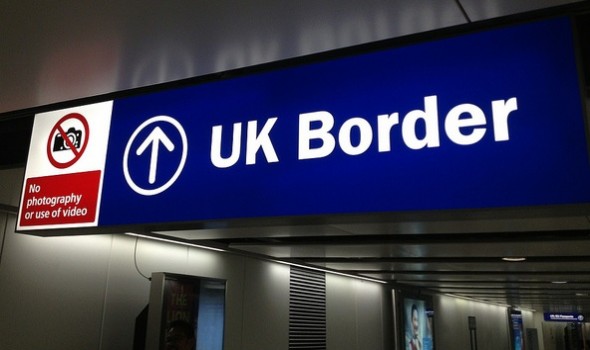Our response to the leaked document
Our response to the leaked document

The newly leaked immigration policy paper is a disaster waiting to happen.
The paper outlines an approach that has been called a “Britain first” approach but it is nothing of the sort; driving down standards for foreign residents is not the same as improving standards for citizens.
For instance, a spousal income threshold that prevents the least well-off 40% of Britons from living at home with a foreign partner would be extended to cover European citizens. Normal life would not be an option for foreign workers in other respects – short work permits of 2-5 years would render them unable to settle, engage in society and build a life without being uprooted.
The paper signals an extension of “hostile environment” measures which have already divided communities. The proposed new regime of short-term permits, fingerprinting and crippling income thresholds for newcomers will slash across countless ties between families, businesses and communities across Europe. This is being justified on the grounds that it will protect employment conditions for British workers.
It will not. On the same day the Brexit paper leaked, the IPPR’s Commission on Economic Justice highlighted the rise of low pay and stagnant wages, a third of children in poverty, and more employees overqualified for their jobs than anywhere else in the EU. These are domestic problems with domestic solutions.
Migrants are not and have never been, contrary to tabloid headlines, a net drain on the economy. In fact prior to the Brexit vote, recent European arrivals contributed £1.30 for every £1 invested in them. The reason many people have not seen the profits of migration is that those in power have not distributed gains evenly.
All these problems could be worsened by the new proposals. There is little to retain even high-skilled workers. But a system that only permits high-skilled migration will not work either; discriminating between applicants effectively on how wealthy they are is no way to manage migration fairly.
Just yesterday, another cross-party group pointed out that a rush to drive down “low-skilled” migration, far from freeing up space, will remove workers who do vital and currently unfillable jobs. Positions in care work and business, and even dental technicians and air traffic controllers are among those branded “low-skilled” – a term that in itself devalues hard work.
A sweeping rewrite of policy will be necessary in the near future; Britain’s departure from the European Union will mean redefining our relationship with our neighbours. But Britain did not vote to break up people’s families, force people out of their jobs or divide our communities. That is what the Government’s current proposals do. They are the result of longstanding political commitment to an arbitrary target for migrant numbers that has not and cannot be reached, and asks all the wrong questions.
It’s time for a migration policy genuinely in the national interest rather than one pandering to tabloid rhetoric. Next year’s Immigration Bill should instead prioritise supporting stronger families and communities, responding to economic needs, responding to the needs of the most vulnerable at home and abroad, and providing opportunities for all those who wish to make the UK their home to contribute and flourish.


